Midwife continuity of care models versus other models of care for childbearing women
- PMID: 38597126
- PMCID: PMC11005019
- DOI: 10.1002/14651858.CD004667.pub6
Midwife continuity of care models versus other models of care for childbearing women
Abstract
Background: Midwives are primary providers of care for childbearing women globally and there is a need to establish whether there are differences in effectiveness between midwife continuity of care models and other models of care. This is an update of a review published in 2016.
Objectives: To compare the effects of midwife continuity of care models with other models of care for childbearing women and their infants.
Search methods: We searched the Cochrane Pregnancy and Childbirth Trials Register, ClinicalTrials.gov, and the WHO International Clinical Trials Registry Platform (ICTRP) (17 August 2022), as well as the reference lists of retrieved studies.
Selection criteria: All published and unpublished trials in which pregnant women are randomly allocated to midwife continuity of care models or other models of care during pregnancy and birth.
Data collection and analysis: Two authors independently assessed studies for inclusion criteria, scientific integrity, and risk of bias, and carried out data extraction and entry. Primary outcomes were spontaneous vaginal birth, caesarean section, regional anaesthesia, intact perineum, fetal loss after 24 weeks gestation, preterm birth, and neonatal death. We used GRADE to rate the certainty of evidence.
Main results: We included 17 studies involving 18,533 randomised women. We assessed all studies as being at low risk of scientific integrity/trustworthiness concerns. Studies were conducted in Australia, Canada, China, Ireland, and the United Kingdom. The majority of the included studies did not include women at high risk of complications. There are three ongoing studies targeting disadvantaged women. Primary outcomes Based on control group risks observed in the studies, midwife continuity of care models, as compared to other models of care, likely increase spontaneous vaginal birth from 66% to 70% (risk ratio (RR) 1.05, 95% confidence interval (CI) 1.03 to 1.07; 15 studies, 17,864 participants; moderate-certainty evidence), likelyreduce caesarean sections from 16% to 15% (RR 0.91, 95% CI 0.84 to 0.99; 16 studies, 18,037 participants; moderate-certainty evidence), and likely result in little to no difference in intact perineum (29% in other care models and 31% in midwife continuity of care models, average RR 1.05, 95% CI 0.98 to 1.12; 12 studies, 14,268 participants; moderate-certainty evidence). There may belittle or no difference in preterm birth (< 37 weeks) (6% under both care models, average RR 0.95, 95% CI 0.78 to 1.16; 10 studies, 13,850 participants; low-certainty evidence). We arevery uncertain about the effect of midwife continuity of care models on regional analgesia (average RR 0.85, 95% CI 0.79 to 0.92; 15 studies, 17,754 participants, very low-certainty evidence), fetal loss at or after 24 weeks gestation (average RR 1.24, 95% CI 0.73 to 2.13; 12 studies, 16,122 participants; very low-certainty evidence), and neonatal death (average RR 0.85, 95% CI 0.43 to 1.71; 10 studies, 14,718 participants; very low-certainty evidence). Secondary outcomes When compared to other models of care, midwife continuity of care models likely reduce instrumental vaginal birth (forceps/vacuum) from 14% to 13% (average RR 0.89, 95% CI 0.83 to 0.96; 14 studies, 17,769 participants; moderate-certainty evidence), and may reduceepisiotomy 23% to 19% (average RR 0.83, 95% CI 0.77 to 0.91; 15 studies, 17,839 participants; low-certainty evidence). When compared to other models of care, midwife continuity of care models likelyresult in little to no difference inpostpartum haemorrhage (average RR 0.92, 95% CI 0.82 to 1.03; 11 studies, 14,407 participants; moderate-certainty evidence) and admission to special care nursery/neonatal intensive care unit (average RR 0.89, 95% CI 0.77 to 1.03; 13 studies, 16,260 participants; moderate-certainty evidence). There may be little or no difference in induction of labour (average RR 0.92, 95% CI 0.85 to 1.00; 14 studies, 17,666 participants; low-certainty evidence), breastfeeding initiation (average RR 1.06, 95% CI 1.00 to 1.12; 8 studies, 8575 participants; low-certainty evidence), and birth weight less than 2500 g (average RR 0.92, 95% CI 0.79 to 1.08; 9 studies, 12,420 participants; low-certainty evidence). We are very uncertain about the effect of midwife continuity of care models compared to other models of care onthird or fourth-degree tear (average RR 1.10, 95% CI 0.81 to 1.49; 7 studies, 9437 participants; very low-certainty evidence), maternal readmission within 28 days (average RR 1.52, 95% CI 0.78 to 2.96; 1 study, 1195 participants; very low-certainty evidence), attendance at birth by a known midwife (average RR 9.13, 95% CI 5.87 to 14.21; 11 studies, 9273 participants; very low-certainty evidence), Apgar score less than or equal to seven at five minutes (average RR 0.95, 95% CI 0.72 to 1.24; 13 studies, 12,806 participants; very low-certainty evidence) andfetal loss before 24 weeks gestation (average RR 0.82, 95% CI 0.67 to 1.01; 12 studies, 15,913 participants; very low-certainty evidence). No maternal deaths were reported across three studies. Although the observed risk of adverse events was similar between midwifery continuity of care models and other models, our confidence in the findings was limited. Our confidence in the findings was lowered by possible risks of bias, inconsistency, and imprecision of some estimates. There were no available data for the outcomes: maternal health status, neonatal readmission within 28 days, infant health status, and birth weight of 4000 g or more. Maternal experiences and cost implications are described narratively. Women receiving care from midwife continuity of care models, as opposed to other care models, generally reported more positive experiences during pregnancy, labour, and postpartum. Cost savings were noted in the antenatal and intrapartum periods in midwife continuity of care models.
Authors' conclusions: Women receiving midwife continuity of care models were less likely to experience a caesarean section and instrumental birth, and may be less likely to experience episiotomy. They were more likely to experience spontaneous vaginal birth and report a positive experience. The certainty of some findings varies due to possible risks of bias, inconsistencies, and imprecision of some estimates. Future research should focus on the impact on women with social risk factors, and those at higher risk of complications, and implementation and scaling up of midwife continuity of care models, with emphasis on low- and middle-income countries.
Copyright © 2024 The Authors. Cochrane Database of Systematic Reviews published by John Wiley & Sons, Ltd. on behalf of The Cochrane Collaboration.
Conflict of interest statement
Jane Sandall: Jane Sandall was Head of Maternity and Midwifery Research NHS England 2/21‐8/23. She is also a member of the
Cristina Fernandez Turienzo: CFT was lead author on Fernandez Turienzo 2020, and had no involvement in the assessment of this trial for the review.
Declan Devane: Declan Devane is Director of Evidence Synthesis Ireland, Scientific Director of Cochrane Ireland, but had no involvement in the editorial processing of this review. DD was an author on Begley 2011. He had no involvement in the assessment of this trial for the review.
Hora Soltani: no known conflict of interest.
Simon Gates: no known conflict of interest. Simon was the Statistical Editor for Cochrane Pregnancy and Childbirth but had no involvement in the editorial processing of this review.
Paddy Gillespie: no known conflict of interest.
Leanne Jones: Leanne Jones was the Acting Managing Editor of Cochrane Pregnancy and Childbirth but had no involvement in the editorial processing of this review. Leanne is currently a Managing Editor within the Evidence Production & Methods Directorate for the Cochrane Central Executive, but again had no involvement in the editorial or peer review processing of this review.
Andrew Shennan: Andrew Shennan is chair of the FIGO preterm birth committee and has advised WHO in this capacity. He leads a NIHR global health research group. AS was co‐investigator on Fernandez Turienzo 2020, and had no involvement in the assessment of this trial for the review.
Hannah Rayment‐Jones: no known conflict of interest.
Figures


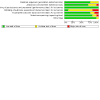





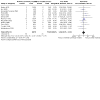

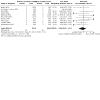










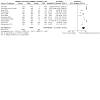












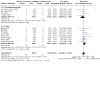






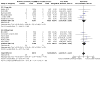
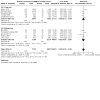








Update of
-
Antiviral medications for preventing cytomegalovirus disease in solid organ transplant recipients.Cochrane Database Syst Rev. 2013 Feb 28;(2):CD003774. doi: 10.1002/14651858.CD003774.pub4. Cochrane Database Syst Rev. 2013. Update in: Cochrane Database Syst Rev. 2024 Apr 10;4:CD004667. doi: 10.1002/14651858.CD004667.pub6. Update in: Cochrane Database Syst Rev. 2024 May 3;5:CD003774. doi: 10.1002/14651858.CD003774.pub5. PMID: 23450543 Updated.
References
References to studies included in this review
Begley 2011 {published and unpublished data}
-
- Begley C, Devan D, Clarke M. An evaluation of midwifery-led care in the Heath Service Executive North Eastern Area: the report of the MiDU study. School of Nursing and Midwifery, Trinity College Dublin, HealthService Executive (HSE) http://hdl.handle.net/10147/299856 (accessed 3 January 2022).
-
- Kenny C, Devane D, Normand C, Clarke M, Howard A, Begley C. A cost-comparison of midwife-led compared with consultant-led maternity care in Ireland (the MidU study). Midwifery 2015;31(11):1032-8. - PubMed
Biro 2000 {published data only}
-
- Biro MA, Waldenstrom U, Brown S, Pannifex JH. Satisfaction with team midwifery care for low- and high-risk women: a randomized controlled trial. Birth 2003;30(1):1-10. - PubMed
-
- Biro MA, Waldenstrom U, Pannifex JH. Team midwifery care in a tertiary level obstetric service: a randomized controlled trial. Birth 2000;27(3):168-73. - PubMed
Fernandez Turienzo 2020 {published data only}
-
- Brigante L, Sandall J. How is the implementation of a new continuity of care model for women at high risk of preterm birth (POPPIE) experienced by women? A qualitative thematic analysis. BJOG: An International Journal of Obstetrics and Gynaecology 2019;126:124. [CENTRAL: CN-01937133] [EMBASE: 627142613]
-
- Fernandez Turienzo C, Bick D, Bollard M, Brigante L, Briley A, Coxon K, et al. Poppie: protocol for a randomised controlled pilot trial of continuity of midwifery care for women at increased risk of preterm birth. Trials 2019;20(1):271. [CENTRAL: CN-01938207] [EMBASE: 627652423] [PMID: ] - PMC - PubMed
-
- Fernandez Turienzo C, Bick D, Briley AL, Bollard M, Coxon K, Cross P, et al. Midwifery continuity of care versus standard maternity care for women at increased risk of preterm birth: a hybrid implementation - effectiveness, randomised controlled pilot trial in the UK. PLOS Medicine 2020;17(10):e1003350. [CENTRAL: CN-02202771] [EMBASE: 2008387651] [PMID: ] - PMC - PubMed
-
- Fernandez Turienzo C, Hull LH, Coxon K, Bollard M, Cross P, Seed PT, Shennan AH, Sandall J. A continuity of care programme for women at risk of preterm birth in the UK: process evaluation of a hybrid randomised controlled pilot trial. PLOS One 2023;18(1):e0279695. [DOI: 10.1371/journal.pone.0279695] - DOI - PMC - PubMed
-
- Fernandez Turienzo C, Silverio SA, Coxon K, Brigante L, Seed PT, Shennan AH, et al. Experiences of maternity care among women at increased risk of preterm birth receiving midwifery continuity of care compared to women receiving standard care: results from the POPPIE pilot trial. PLOS One 2021;16(4):e0248588. [CENTRAL: CN-02274637] [EMBASE: 2011800182] [PMID: ] - PMC - PubMed
Flint 1989 {published data only}
-
- Flint C, Poulengeris P, Grant AM. The 'Know your midwife' scheme - a randomised trial of continuity of care by a team of midwives. Midwifery 1989;5:11-6. - PubMed
-
- Flint C, Poulengeris, P. The 'Know your Midwife' Report. London: Heinemann, 1986.
-
- Flint C. Know your midwife. Nursing Times 1988;84:28-32. - PubMed
Gu 2013 {published data only}
-
- Gu C, Wu X, Ding Y, Zhu X, Zhang Z. The effectiveness of a Chinese midwives' antenatal clinic service on childbirth outcomes for primipare: a randomised controlled trial. International Journal of Nursing Studies 2013;50(12):1689-97. - PubMed
Harvey 1996 {published data only}
Hicks 2003 {published data only}
-
- Hicks C, Spurgeon P, Barwell F. Changing childbirth: a pilot project. Journal of Advanced Nursing 2003;42(6):617-28. - PubMed
Homer 2001 {published data only}
-
- ACTRN12611001214921. A randomised controlled trial to determine whether continuity of care increases the rate of attempted vaginal birth after caesarean (VBAC). http://www.who.int/trialsearch/Trial2.aspx?TrialID=ACTRN12611001214921 (first received 2011). [CENTRAL: CN-01810857]
-
- Homer C, Davis G, Brodie P, Sheehan A, Barclay L, Wills J, et al. Collaboration in maternity care: a randomised controlled trial comparing community-based continuity of care with standard hospital care. BJOG: an International Journal of Obstetrics and Gynaecology 2001;108:16-22. - PubMed
-
- Homer C. Incorporating cultural diversity in randomised controlled trials in midwifery. Midwifery 2000;16:252-9. - PubMed
-
- Homer CS, Davis DL, Mollart L, Turkmani S, Smith RM, Bullard M, et al. Midwifery continuity of care and vaginal birth after caesarean section: a randomised controlled trial. Women and Birth 2021;35(3):e294-301. [CENTRAL: CN-02284366] [EMBASE: 2012854904] [PMID: ] - PubMed
Kenny 1994 {published data only}
-
- Kenny P, Brodie P, Eckerman S, Hall J. Final Report. Westmead Hospital Team Midwifery Project Evaluation. Sydney: University of Sydney, 1994.
MacVicar 1993 {published data only}
-
- MacVicar J, Dobbie G, Owen-Johnstone L, Jagger C, Hopkins M, Kennedy J. Simulated home delivery in hospital: a randomised controlled trial. British Journal of Obstetrics and Gynaecology 1993;100:316-23. - PubMed
Marks 2003 {published data only}
-
- Marks MN, Siddle K, Warwick C. Can we prevent postnatal depression? A randomized controlled trial to assess the effect of continuity of midwifery care on rates of postnatal depression in high-risk women. Journal of Maternal-Fetal and Neonatal Medicine 2003;13:119-27. - PubMed
McLachlan 2012 {published data only}
-
- Davey M, McLachlan H, Forster D. Timing of admission and selected aspects of intrapartum care: relationship with caesarean section in the COSMOS (Caseload Midwifery) trial. Women & Birth 2013;26(Suppl 1):S3.
-
- Davey MA, McLachlan L, Forster D, Flood M. Influence of timing of admission in labour and management of labour on method of birth: results from a randomised controlled trial of caseload midwifery (COSMOS trial). Midwifery 2013;29(12):1297-302. - PubMed
-
- Flood M, Forster DA, Davey MA, McLachlan HL. Serious adverse event monitoring in a RCT of caseload midwifery (COSMOS). Journal of Paediatrics and Child Health 2012;48(Suppl 1):113.
-
- Forster DA, McLachlan HL, Davey MA, Biro MA, Farrell T, Gold L, et al. Continuity of care by a primary midwife (caseload midwifery) increases women's satisfaction with antenatal, intrapartum and postpartum care: results from the COSMOS randomised controlled trial. BMC Pregnancy and Childbirth 2016;16(1):28. [CENTRAL: CN-01200294] [PMID: ] - PMC - PubMed
-
- Forster DA, McLachlan HL, Davey MA, Flood M. A randomised controlled trial of caseload midwifery for women at low risk of medical complications (cosmos): breastfeeding intentions, initiation and two month feeding outcomes. Journal of Paediatrics and Child Health 2015;51(Suppl 1):48. [CENTRAL: CN-01732070] [EMBASE: 71873897]
North Stafford 2000 {published data only}
-
- North Staffordshire Changing Childbirth Research Team. A randomised study of midwifery caseload care and traditional 'shared-care'. Midwifery 2000;16:295-302. - PubMed
Rowley 1995 {published data only}
-
- Rowley MJ, Hensley MJ, Brinsmead MW, Wlodarczyk JH. Continuity of care by a midwife team vs routine care during pregnancy and birth: a randomised trial. Medical Journal of Australia 1995;163:289-93. - PubMed
Tracy 2013 {published data only}
-
- Allen J, Jenkinson B, Tracy SK, Hartz DL, Tracy M, Kildea S. Women's unmet needs in early labour: qualitative analysis of free-text survey responses in the M@NGO trial of caseload midwifery. Midwifery 2020;88:102751. [CENTRAL: CN-02138832] [EMBASE: 632017720] [PMID: ] - PubMed
-
- Allen J, Kildea S, Hartz DL, Tracy M, Tracy S. The motivation and capacity to go 'above and beyond': qualitative analysis of free-text survey responses in the M@NGO randomised controlled trial of caseload midwifery. Midwifery 2017;50:148-56. [CENTRAL: CN-01600476] [EMBASE: 621963008] [PMID: ] - PubMed
-
- Allen J, Kildea S, Tracy MB, Hartz DL, Welsh AW, Tracy SK. The impact of caseload midwifery, compared with standard care, on women's perceptions of antenatal care quality: survey results from the M@NGO randomized controlled trial for women of any risk. Birth (Berkeley, Calif.) 2019;46(3):439-49. [CENTRAL: CN-02083893] [PMID: ] - PubMed
-
- Forti A, Kildea S, Stapleton H. Intrapartum care for women: A sub-study of the M@NGO RCT. Women and Birth 2015;28 Suppl:S14-5.
-
- Hartz D, Hall B, Allen J, Lainchbury A, Forti A, Kildea S, et al. The M@NGO Trial: Does caseload midwifery reduce caesarean section operation rates? Women & Birth 2013;26(Suppl 1):S8-9.
Turnbull 1996 {published data only}
-
- Cheyne H, McGinley M, Turnbull D, Holmes A, Shields N, Greer I, et al. Midwife managed care: results of a randomised controlled trial of 1299 women. Prenatal and Neonatal Medicine 1996;1(Suppl 1):129.
-
- Holmes A, McGinley M, Turnbull D, Shields N, Hillan E. A consumer driven quality assurance model for midwifery. British Journal of Midwifery 1996;4(10):512-8.
-
- McGinley M, Turnbull D, Fyvie H, Johnstone I, MacLennan B. Midwifery development unit at Glasgow Royal Maternity Hospital. British Journal of Midwifery 1995;3(7):362-71.
-
- Shields N, Holmes A, Cheyne H. Knowing your midwife in labour. British Journal of Midwifery 1995;7(8):504-10.
-
- Shields N, Reid M, Cheyne H, Holmes A, McGinley M, Turnbull D, et al. Impact of midwife-managed care in the postnatal period: an exploration of psychosocial outcomes. Journal of Reproductive and Infant Psychology 1997;15:91-108.
Waldenstrom 2001 {published data only}
-
- Waldenstrom U, Brown S, McLachlan H, Forster D, Brennecke S. Does team midwife care increase satisfaction with antenatal, intrapartum, and postpartum care? A randomized controlled trial. Birth 2000;27(3):156-67. - PubMed
-
- Waldenstrom U, McLachlan H, Forster D, Brennecke S, Brown S. Team midwife care: maternal and infant outcomes. Australian and New Zealand Journal of Obstetrics and Gynaecology 2001;41(3):257-64. - PubMed
References to studies excluded from this review
Allen 2013 {published data only}
Bagheri 2021 {published data only}
-
- Bagheri A, Simbar M, Samimi M, Nahidi F, Alavimajd H, Sadat Z. Comparing the Implications of midwifery-led care and standard model on maternal and neonatal outcomes during pregnancy, childbirth and postpartum. Journal of Midwifery & Reproductive Health 2021;9(3):1-10. [CENTRAL: CN-02309182]
-
- IRCT201408318801N9. Development and evaluating a model of continuous midwifery care during pregnancy, labor and postpartum, an action research study [Evaluation the effect of continuous midwifery care model during pregnancy, labor and postpartum on maternal and neonatal]. http://www.who.int/trialsearch/Trial2.aspx?TrialID=IRCT201408318801N9 (first received 2016). [CENTRAL: CN-01850113]
Bergland 1998 {published data only}
-
- Berglund A, Lindmark G. Midwife managed care - impact on use of health services: and area-based randomised controlled trial. In: XVI FIGO World Congress of Obstetrics & Gynecology . Vol. Book 4. Washington DC USA, 2000:116.
-
- Berglund A, Lindmark GC. Health services effects of a reduced routine programme for antenatal care. European Journal of Obstetrics & Gynecology and Reproductive Biology 1998;77(2):193-9. - PubMed
Bergland 2007 {published data only}
-
- Berglund A, Lindberg M, Nystrom L, Lindmark G. Combining the perspectives of midwives and doctors improves risk assessment in early pregnancy. Acta Obstetricia et Gynecologica Scandinavica 2007;86(2):177-84. - PubMed
Bernitz 2011 {published data only}
-
- Bernitz S, Aas E, Oian P. Economic evaluation of birth care in low-risk women. A comparison between a midwife-led birth unit and a standard obstetric unit within the same hospital in Norway. A randomised controlled trial. Midwifery 2012;28(5):591-9. - PubMed
-
- Bernitz S, Rolland R, Blix E, Jacobsen M, Sjoborg K, Oian PL. Is the operative delivery rate in low-risk women dependent on birth care level? A randomised controlled trial. Acta Obstetricia et Gynecologica Scandinavica 2012;91(159):45-6.
Brugha 2016 {published data only}ISRCTN72346869
-
- Brugha TS, Smith J, Austin J, Bankart J, Patterson M, Lovett C, et al. Can community midwives prevent antenatal depression? An external pilot study to test the feasibility of a cluster randomized controlled universal prevention trial. Psychological Medicine 2016;46(2):345-56. [CENTRAL: CN-01200735] [PMID: ] - PMC - PubMed
Byrne 2000 {published data only}
Chambliss 1991 {published data only}
-
- Chambliss L, Daly C, Medearis AL, Ames M, Turnquist R, Kayne M, et al. Significant differences in cesarean birth rates for resident physician and nurse midwife services are the result of selection criteria. American Journal of Obstetrics and Gynecology 1991;164:313.
-
- Chambliss LR, Daly C, Medearis AL, Ames M, Kayne M, Paul R. The role of selection bias in comparing cesarean birth rates between physician and midwifery management. Obstetrics & Gynecology 1992;80(2):161-5. - PubMed
Chapman 1986 {published data only}
-
- Chapman MG, Jones M, Spring JE, De Swiet M, Chamberlain GVP. The use of a birthroom: a randomized controlled trial comparing delivery with that in the labour ward. British Journal of Obstetrics and Gynaecology 1986;93:182-7. - PubMed
de Wolff 2021 {published data only}
-
- De Wolff M, Midtgaard J, Johansen M, Rom L, Tabor A, Hegaard H. A midwife-coordinated maternity care intervention (ChroPreg) vs. standard care for pregnant women with chronic medical conditions: results from a randomized controlled trial. European Journal of Obstetrics and Gynecology and Reproductive Biology 2022;270:e84. [CENTRAL: CN-02421972] [EMBASE: 2017204835]
-
- De Wolff MG, Johansen M, Ersboll AS, Rosthoj S, Brunsgaard A, Midtgaard J, et al. Efficacy of a midwife-coordinated, individualized, and specialized maternity care intervention (ChroPreg) in addition to standard care in pregnant women with chronic disease: protocol for a parallel randomized controlled trial. Trials 2019;20(1):291. [CENTRAL: CN-01956269] [EMBASE: 627902223] [PMID: ] - PMC - PubMed
-
- Hegaard HK. Pregnancy and chronic disease: the effect of a midwife-coordinated maternity care Intervention [Efficacy of a midwife-coordinated, individualized, and specialized maternity care intervention (ChroPreg) in addition to standard care in pregnant women with chronic disease: a parallel randomized controlled trial]. https://clinicaltrials.gov/show/NCT03511508 2018. [CENTRAL: CN-02047550] - PMC - PubMed
-
- Wolff MG, Midtgaard J, Johansen M, Rom AL, Rosthoj S, Tabor A, et al. Effects of a midwife-coordinated maternity care intervention (Chropreg) vs. standard care in pregnant women with chronic medical conditions: results from a randomized controlled trial. International Journal of Environmental Research and Public Health 2021;18(15):7875. [CENTRAL: CN-02291979] [EMBASE: 2007881315] [PMID: ] - PMC - PubMed
Famuyide 2014 {published data only}
-
- Famuyide A. OB Nest; redefining continuity of care for expectant mothers. http://clinicaltrials.gov/ 2014.
Forster 2022 {published data only}
-
- Forster. Exploring the impact of midwife-led group antenatal care on caesarean section rates and infant health: a multi-site randomised controlled trial. ACTRN12622000607774. https://trialsearch.who.int/Trial2.aspx?TrialID=ACTRN12622000607774 2022. [CENTRAL: CN-02424850]
Giles 1992 {published data only}
-
- Giles W, Collins J, Ong F, MacDonald R. Antenatal care of low risk obstetric patients by midwives. Medical Journal of Australia 1992;157:158-61. - PubMed
Hailemeskel 2021 {published data only}
-
- Hailemeskel S, Alemu K, Christensson K, Tesfahun E, Lindgren H. Midwife-led continuity of care improved maternal and neonatal health outcomes in North Shoazone, Amhararegional state, Ethiopia: a quasi-experimental study. Women and Birth 2021;3:340-8. [DOI: 10.1016/j.wombi.2022.01.005] - DOI - PubMed
-
- Hailemeskel S, Alemu K, Christensson K, Tesfahun E, Lindgren H. Midwife-led continuity of care increases women’s satisfaction with antenatal, intrapartum, and postpartum care: North Shoa, Amhara regional state, Ethiopia: a quasi-experimental study. Women and Birth 2022;20(35):553-62. - PubMed
Hans 2018 {published data only}
Heins 1990 {published data only}
-
- Heins HC, Nance NW, McCarthy BJ, Efird CM. A randomized trial of nurse-midwifery prenatal care to reduce low birth weight. Obstetrics & Gynecology 1990;75:341-5. - PubMed
Hildingsson 2003 {published data only}
-
- Hildingsson I, Waldenstrom U, Radestad I. Swedish women's interest in home birth and in-hospital birth center care. Birth 2003;30(1):11-22. - PubMed
Hundley 1994 {published data only}
-
- Hundley VA, Cruickshank FM, Milne JM, Glazener CMA, Lang GD, Turner M, et al. Satisfaction and continuity of care: staff views of care in a midwife‐managed delivery unit. Midwifery 1995;11:163-73. - PubMed
-
- Hundley VA, Donaldson C, Lang GD, Cruickshank FM, Glazener CMA, Milne JM, et al. Costs of intrapartum care in a midwife managed delivery unit and a consultant led labour ward. Midwifery 1995;11:103-9. - PubMed
James 1988 {published data only}
-
- James DK. A comparison of a schematic approach to antenatal care and conventional shared care. Personal communication 1988.
Kelly 1986 {published data only}
-
- Kelly J. Comparison of two different methods of delivering antenatal care, one with components provided by an obstetrician, the other by a midwife. Personal communication 1986.
Kildea 2017 {published data only}
-
- Kildea S, Simcock G, Liu A, Elgbeili G, Laplante DP, Kahler A, et al. Continuity of midwifery carer moderates the effects of prenatal maternal stress on postnatal maternal wellbeing: the Queensland flood study. Archives of Women's Mental Health 2018;21(2):203-14. [CENTRAL: CN-01656702] [EMBASE: 618503182] - PubMed
Kildea 2021 {published data only}
-
- Kildea S, Gao Y, Hickey S, Nelson C, KruskeS, Carson A, et al. Effect of a Birthing on Country service redesign on maternal and neonatal health outcomes for First Nations Australians: a prospective, non-randomised, interventional trial. Lancet Global Health 2021;1(9):e651-9. - PubMed
Klein 1984 {published data only}
Law 1999 {published data only}
-
- Law YY, Lam KY. A randomized controlled trial comparing midwife-managed care and obstetrician-managed care for women assessed to be at low risk in the initial intrapartum period. Journal of Obstetrics & Gynaecology Research 1999;25:107-12. - PubMed
Li 2015 {published data only}
-
- Li YP, Yeh CH, Lin SY, Chen TC, Yang YL, Lee CN, et al. A proposed mother-friendly childbirth model for taiwanese women, the implementation and satisfaction survey. Taiwanese Journal of Obstetrics & Gynecology 2015;54(6):731-6. [CENTRAL: CN-01200475] [PMID: ] - PubMed
Lin 2020 {published data only}
-
- Lin X, Yang T, Zhang X, Wei W. Lifestyle intervention to prevent gestational diabetes mellitus and adverse maternal outcomes among pregnant women at high risk for gestational diabetes mellitus. Journal of International Medical Research 2020;48(12):300060520979130. [CENTRAL: CN-02268776] [PMID: ] - PMC - PubMed
Loy 2021 {published data only}
-
- Loy SL, Thilagamangai, Teo J, Chan SW, Razak NKA, Chay OM, et al. A Community-enabled Readiness for first 1000 Days Learning Ecosystem (CRADLE) for first-time families: study protocol of a three-arm randomised controlled trial. Trials 2021;22(1):1-10. [CENTRAL: CN-02265376] [EMBASE: 2010705084] [PMID: ] - PMC - PubMed
-
- NCT04275765. Community enabled readiness for first 1000 days learning ecosystem. https://clinicaltrials.gov/show/NCT04275765 (first received 19 February 2020). [CENTRAL: CN-02088295]
Michel‐Schuldt 2021 {published data only}
-
- Michel-Schuldt M. Midwife-Led Care in Low-and Middle-Income Countries with a Focus on Implementation in Bangladesh. Doctoral dissertation 2021.
Mohammad‐Alizadeh‐Charandabi 2019 {published data only}
-
- Mohammad-Alizadeh-Charandabi S. Effect of continuous care model from pregnancy to postpartum by midwifery students [The effect of implementing the continuous care model by midwifery students during pregnancy, childbirth, and postpartum on childbirth experience, fear of childbirth, and postpartum depression]. https://trialsearch.who.int/Trial2.aspx?TrialID=IRCT20100414003706N41 2019. [CENTRAL: CN-02410556]
Morrison 2002 {published data only}
-
- Morrison J, Neale L, Taylor R, McCowan L. Caring for pregnant women with diabetes. British Journal of Midwifery 2002;10(7):434-9. [DOI: 10.12968/bjom.2002.10.7.10587] - DOI
Mortensen 2018 {published data only}
-
- Mortensen B. Making midwifery matter -the introduction of a midwife-led continuity model of care in occupied Palestine. Doctoral thesis 2020.
Nagle 2011 {published data only}
-
- Nagle C. The impact of continuity of care on weight gain in obese pregnant women. ACTRN12610001078044 8 December 2010.
Qiu 2020 {published data only}
Ridgeway 2015 {published data only}
-
- Baron AM, Ridgeway JL, Stirn SL, Morris MA, Branda ME, Inselman JW, et al. Increasing the connectivity and autonomy of RNs with low-risk obstetric patients. American Journal of Nursing 2018;1(118):48-55. - PubMed
-
- Tobah YS, LeBlanc A, Branda ME, Inselman JW, Morris MA, Ridgeway JL, et al. Randomized comparison of a reduced-visitprenatal care model enhanced with remote monitoring. American Journal of Obstetrics and Gynecology 2019;1(221):638. - PubMed
-
- Mooij MJ, Hodny RL, O'Neil DA, Gardner MR, Beaver M, Brown AT, et al. OB Nest: reimagining low-risk prenatal care. Mayo Clinic Proceedings 2018;93(4):458-66. - PubMed
Runnerstrom 1969 {published data only}
-
- Runnerstrom L. The effectiveness of nurse-midwifery in a supervised hospital environment. Bulletin of the American College of Midwives 1969;14:40-52. - PubMed
Slome 1976 {published data only}
-
- Slome C, Wetherbee H, Daly M, Christensen K, Meglen M, Thiede H. Effectiveness of certified nurse-midwives. A prospective evaluation study. American Journal of Obstetrics and Gynecology 1976;124:177-82. - PubMed
Stevens 1988 {published data only}
-
- Stevens A. A randomised trial of community antenatal care in Birmingham. Oxford Database of Perinatal Trials Registration 1988.
Tucker 1996 {published data only}
-
- Ratcliffe J, Ryan M, Tucker J. The costs of alternative types of routine antenatal care for low-risk women: shared care vs care by general practitioners and community midwives. Journal of Health Services & Research Policy 1996;1:135-40. - PubMed
-
- Tucker JS, Hall MH, Howie PW, Reid ME, Barbour RS, Florey CD, et al. Should obstetricians see women with normal pregnancies? A multicentre randomised controlled trial of routine antenatal care by general practitioners and midwives compared with shared care led by obstetricians. BMJ 1996;312:554-9. - PMC - PubMed
Waldenstrom 1997 {published data only}
-
- Gottvall K, Waldenstrom U. Does birth center care during a woman's first pregnancy have any impact on her future reproduction? Birth 2002;29(3):177-81. - PubMed
-
- Waldenstrom U, Nilsson CA, Winbladh B. The Stockholm birth centre trial: maternal and infant outcome. British Journal of Obstetrics and Gynaecology 1997;104:410-8. - PubMed
-
- Waldenstrom U, Nilsson CA. A randomized controlled study of birth center care versus standard maternity care: effects on women's health. Birth 1997;24:17-26. - PubMed
-
- Waldenstrom U, Nilsson CA. Experience of childbirth in birth center care: a randomized controlled study. Acta Obstetricia et Gynecologica Scandinavica 1994;73:547-54. - PubMed
-
- Waldenstrom U, Nilsson CA. No effect of birth centre care on either duration or experience of breast feeding, but more complications: findings from a randomised controlled trial. Midwifery 1994;10:8-17. - PubMed
Walker 2012 {published data only}
-
- Walker D, Demaria L, Gonzalez-Hernandez D, Padron-Salas A, Romero-Alvarez M, Suarez L. Are all skilled birth attendants created equal? A cluster randomised controlled study of non-physician based obstetric care in primary health care clinics in Mexico. Midwifery 2013;29(10):1199-205. - PubMed
-
- Walker DM, DeMaria L, Suarez L, Gonzales D, Romero M, Padron A. Are all skilled birth attendants created equal? Evidence from Mexico? International Journal of Gynecology and Obstetrics 2012;119(3):S516-7.
Wiggins 2020 {published data only}
-
- Wiggins M, Sawtell M, Wiseman O, McCourt C, Eldridge S, Hunter R, et al. Group antenatal care (Pregnancy Circles) for diverse and disadvantaged women: study protocol for a randomised controlled trial with integral process and economic evaluations. BMC Health Services Research 2020;20(1):919. [CENTRAL: CN-02191692] [EMBASE: 633136011] [PMID: ] - PMC - PubMed
Zelani 2011 {published data only}
-
- Zelani BD. Effectiveness of a midwife led continuity of antenatal care caseload model on preterm birth and maternal satisfaction among women in Malawi. http://www.who.int/trialsearch/Trial2.aspx?TrialID=ACTRN12621000008820 2021. [CENTRAL: CN-02238621]
References to studies awaiting assessment
References to ongoing studies
Cullinane 2021 {published data only}
-
- Cullinane D. Exploring the impact of caseload midwifery on preterm birth among vulnerable and disadvantaged women: a multi-centre randomised controlled trial. http://www.who.int/trialsearch/Trial2.aspx?TrialID=ACTRN12621001211853 2021. [CENTRAL: CN-02327273]
Dickerson 2022 {published data only}
-
- Dickerson. Does the midwife-led continuity of carer model improve birth outcomes and maternal mental health in vulnerable women? [Effectiveness of a midwife-led continuity of carer model on birth outcomes and maternal mental health in vulnerable women: study protocol for a randomised controlled trial with an internal pilot and process and economic evaluations]. https://trialsearch.who.int/Trial2.aspx?TrialID=ISRCTN31836167 2022. [CENTRAL: CN-02429872] - PMC - PubMed
Xiaojiao 2020 {published data only}
-
- Xiaojiao. Development and implementation of midwife-based care model for urban women with uncomplicated pregnancies: a randomized controlled trial. http://www.who.int/trialsearch/Trial2.aspx?TrialID=ChiCTR2000033459 2020. [CENTRAL: CN-02166314]
Additional references
Alderdice 2022
-
- Alderdice F, Malouf R, McLeish J, Roberts N, Rowe R. What evidence is available about the use and effectiveness of collaborative midwife continuity of care models to improve pregnancy outcomes for women with medical and obstetric complexity? A scoping review. Oxford: NIHR PRU-MNHC, National Perinatal Epidemiology Unit, University of Oxford 2022. [ISBN: 978-1-7392619-0-0]
Allen 2017
Allen 2019
-
- Allen J, Kildea S, Tracy MB, Hartz DL, Welsh AW, Tracy SK. The impact of caseload midwifery, compared with standard care, on women's perceptions of antenatal care quality: survey results from the M@ NGO randomized controlled trial for women of any risk. Birth 2019;46(3):439-49. [DOI: 10.1111/birt.12436] - DOI - PubMed
Allen 2020
-
- Allen J, Jenkinson B, Tracy SK, Hartz DL, Tracy M, Kildea S. Women's unmet needs in early labour: qualitative analysis of free-text survey responses in the M@ NGO trial of caseload midwifery. Midwifery 2020;1(88):102751. [DOI: 10.1016/j.midw.2020.102751 Get rights and content] - PubMed
Baker 2020
Barker 2017
Barker 2018
-
- Barker I, Steventon A, Williamson R, Deeny SR. Self-management capability in patients with long-term conditions is associated with reduced healthcare utilisation across a whole health economy: cross-sectional analysis of electronic health records. BMJ Quality & Safety 2018;27(12):989-99. [DOI: 10.1136/bmjqs-2017-007635] - DOI - PMC - PubMed
Bayliss 2015
Bazemore 2023
Beecher 2020
-
- Beecher C, Devane D, White M, Greene R, Dowling M. Women’s experiences of their maternity care: a principle-based concept analysis. Women and Birth 2020;33(5):419-25. - PubMed
Beecher 2021
-
- Beecher C, Greene R, O’Dwyer L, Ryan E, White M, Beattie M, et al. Measuring women's experiences of maternity care: a systematic review of self-report survey instruments. Women and Birth 2021;34(3):231-41. - PubMed
Blomgren 2023
Bradford 2022
Carlise 2017
-
- Carlisle JB. Data fabrication and other reasons for non-random sampling in 5087 randomised, controlled trials in anaesthetic and general medical journals. Anaesthesia 2017;72(8):944-52. - PubMed
Carmone 2020
Chau 2021
Cibralic 2022
Cook 2000
Curran 2022
Dahlberg 2013
De Vries 2001
-
- De Vries R, Benoit C, Van Teijlingen E, Wrede S. Birth by design: pregnancy, maternity care and midwifery in North America and Northern Europe. New York: Routledge, 2001.
Devane 2007
-
- Devane D, Begley CM, Clarke M, Horey D, OBoyle C. Evaluating maternity care: a core set of outcome measures. Birth 2007;34(2):164-72. - PubMed
Donnellan‐Fernandez 2018
Engamba 2019
Fernandez Turienzo 2016
Fernandez Turienzo 2021
Flint 1987
-
- Flint C, Poulengeris P. The 'Know your Midwife' Report. London: Heinemann, 1987.
Forster 2016
-
- Forster DA, McLachlan HL, Davey MA, Biro MA, Farrell T, Gold L, et al. Continuity of care by a primary midwife (caseload midwifery) increases women’s satisfaction with antenatal, intrapartum and postpartum care: results from the COSMOS randomised controlled trial. BMC Pregnancy and Childbirth 2016;16:1-13. [DOI: 10.1186/s12884-016-0798-y] - DOI - PMC - PubMed
Fox 2023
Freeman 2007
-
- Freeman GK, Woloshynowych M, Baker R, Boulton M, Guthrie B, Car J, et al. Continuity of care 2006: what have we learned since 2000 and what are policy imperatives now? Report for the National Co-ordinating Centre for NHS Service Delivery and Organisation (NCCSDO). London: NCCSDO, 2007.
Guthrie 2008
-
- Guthrie B, Saultz JW, Freeman GK, Haggerty JL. Continuity of care matters. BMJ 2008;337:a867. - PubMed
Hadebe 2021
-
- Hadebe R, Seed PT, Essien D, Headen K, Mahmud S, Owasil S, et al. Can birth outcome inequality be reduced using targeted caseload midwifery in a deprived diverse inner city population? A retrospective cohort study, London, UK. BMJ Open 2021;11(11):e049991. [DOI: 10.1136/bmjopen-2021-049991] - DOI - PMC - PubMed
Haggerty 2003
Harvey 2002
Higgins 2011
-
- Higgins JP, Green S, editor(s). CCochrane Handbook for Systematic Reviews of Interventions Version 5.1.0 (updated March 2011). The Cochrane Collaboration, 2011. Available from training.cochrane.org/handbook/archive/v5.1/.
Hoffman 2014
-
- Hoffmann TC, Glasziou PP, Boutron I, Milne R, Perera R, Moher D, et al. Better reporting of interventions: template for intervention description and replication (TIDieR) checklist and guide. BMJ 2014;348:g1687. - PubMed
Homer 2000
Homer 2002
Homer 2016
Homer 2017
Homer 2019
-
- Homer C, Brodie P, Sandall J, Leap N. Midwifery continuity of care: a practical guide. Chatswood: Elsevier Australia, 2019.
ICM 2017
-
- International Confederation of Midwives. International definition of the midwife. ICM core document 2017;CD2005_001 V2017 ENG.
Kelly 2014
-
- Kelly J, West R, Gamble J, Sidebotham M, Carson V, Duffy E. 'She knows how we feel': Australian Aboriginal and Torres Strait Islander childbearing women's experience of Continuity of Care with an Australian Aboriginal and Torres Strait Islander midwifery student. Women and Birth 2014;27(3):157-62. [DOI: 10.1016/j.wombi.2014.06.002] - DOI - PubMed
Kenny 2015
Khan 2023
-
- Khan Z, Vowles Z, Fernandez Turienzo C, Barry Z, Brigante L, Downe S, et al. Targeted health and social care interventions for women and infants who are disproportionately impacted by health inequalities in high-income countries: a systematic review. International Journal for Equity in Health 2023;22:1-19. [DOI: 10.1186/s12939-023-01948-w] - DOI - PMC - PubMed
Kildea 2018
-
- Kildea S, Simcock G, Liu A, Elgbeili G, Laplante DP, Kahler A, et al. Continuity of midwifery carer moderates the effects of prenatal maternal stress on postnatal maternal wellbeing: the Queensland flood study. Archive of Women's Mental Health 2018;21(2):203-14. [DOI: 10.1007/s00737-017-0781-2] - DOI - PubMed
Kildea 2021
-
- Kildea S, Gao Y, Hickey S, Nelson C, Kruske S, Carson A, et al. Effect of a Birthing on Country service redesign on maternal and neonatal health outcomes for First Nations Australians: a prospective, non-randomised, interventional trial. Lancet Global Health 2021;9(5):e651-9. [DOI: 10.1016/ S2214-109X(21)00061-9] - PubMed
Koblinsky 2016
Lowe 2020
McCourt 2006
-
- McCourt C, Stevens T. Continuity of carer–what does it mean and does it matter to midwives and birthing women? Canadian Journal of Midwifery Research and Practice 2006;4(3):10-20. [ISSN: 1703-2121]
McFadden 2020
McInnes 2020
McLachlan 2016
-
- McLachlan HL, Forster DA, Davey MA, Farrell T, Flood M, Shafiei T, et al. The effect of primary midwife‐led care on women's experience of childbirth: results from the COSMOS randomised controlled trial. BJOG: An International Journal of Obstetrics & Gynaecology 2016;123(3):465-74. [DOI: 10.1111/1471-0528.13835] - DOI - PubMed
Moore 2014
NHSE 2021
-
- NHS England and NHS Improvement. Delivering midwifery continuity of carer at full scale: guidance on planning, implementation and monitoring. NHS England and Improvement 2021.
Nove 2021
-
- Nove A, Friberg IK, Bernis L, McConville F, Moran AC, Najjemba M, et al. Potential impact of midwives in preventing and reducing maternal and neonatal mortality and stillbirths: a lives saved tool modelling study.. Lancet Global Health 2021;9(1):e24-w32. [DOI: 10.1016/S2214-109X(20)30397-1] - DOI - PMC - PubMed
Nyweide 2017
O’Malley 2009
Paddison 2015
Parchman 2004
-
- Parchman ML, Burge SK. The patient-physician relationship, primary care attributes, and preventive services. Family Medicine 2004;36(1):22-7. [PMID: ] - PubMed
Pereira Gray 2018
Perriman 2018
-
- Perriman N, Davis DL, Ferguson S. What women value in the midwifery continuity of care model: a systematic review with meta-synthesis. Midwifery 2018;62:220-9. - PubMed
Pourat 2015
Rayment‐Jones 2015
-
- Rayment-Jones H, Murrells T, Sandall J. An investigation of the relationship between the caseload model of midwifery for socially disadvantaged women and childbirth outcomes using routine data--a retrospective, observational study. Midwifery 2015;31(4):409-17. - PubMed
Rayment‐Jones 2020
Rayment‐Jones 2021
-
- Rayment-Jones H, Dalrymple K, Harris J, Harden A, Parslow E, et al. Project20: Does continuity of care and community-based antenatal care improve maternal and neonatal birth outcomes for women with social risk factors? A prospective, observational study. PLOS One 2021;4(16):e0250947. [DOI: 10.1371/journal.pone.0250947] - DOI - PMC - PubMed
Rayment‐Jones 2022
Rayment‐Jones 2023
-
- Rayment-Jones H, Dalrymple K, Harris JM, Harden A, Parslow E, Georgi T, et al. Project20: maternity care mechanisms that improve access and engagement for women with social risk factors in the UK - a mixed-methods, realist evaluation. BMJ Open 2023;13(2):e064291. [DOI: 10.1136/bmjopen-2022-064291] - DOI - PMC - PubMed
Reid 2002
-
- Reid RJ, Haggerty JL, McKendry R. Defusing the confusion: concepts and measures of continuity of health care. Report to the Canadian Health Services Research Foundation 2002.
Renfrew 2014
-
- Renfrew MJ, Homer C, Downe S, McFadden A, Muir N, Prentice, et al. Midwifery: an executive summary for The Lancet’s series. Lancet 2014;384(1):8.
Renfrew 2021
Review Manager Web 2023 [Computer program]
-
- Review Manager Web (RevMan Web). Version 4.28.1. The Cochrane Collaboration, 2023. Available at revman.cochrane.org.
Ryan 2013
-
- Ryan P, Revill P, Devane D, Normand C. An assessment of the cost-effectiveness of midwife-led care in the United Kingdom. Midwifery 2013;29(4):368-76. - PubMed
Sandvik 2021
Santesso 2020
-
- Santesso N, Glenton C, Dahm P, Garner P, Akl EA, Alper B, et al. GRADE guidelines 26: informative statements to communicate the findings of systematic reviews of interventions. Journal of Clinical Epidemiology 2020;119:126-35. - PubMed
Saultz 2003
Saultz 2004
Saultz 2005
Shields 1997
-
- Shields N, Reid M, Cheyne H, Holmes A, McGinley M, Turnbull D, et al. Impact of midwife-managed care in the postnatal period: an exploration of psychosocial outcomes. Journal of Reproductive and Infant Psychology 1997;15(2):91-108. [DOI: 10.1080/02646839708404537] - DOI
Sidaway‐Lee 2021
Skivington 2021
Starfield 2009
-
- Starfield B. Primary care and equity in health: the importance to effectiveness and equity of responsiveness to peoples' needs. Humanity & Society 2009;33(1-2):56-73. [DOI: 10.1177/016059760903300105] - DOI
Sutcliffe 2012
-
- Sutcliffe K, Caird J, Kavanagh J, Rees R, Oliver K, Dickson K, et al. Comparing midwife-led and doctor-led maternity care: a systematic review of reviews. Journal of Advanced Nursing 2012;68(11):2376-86. - PubMed
ten Hoope‐Bender 2014
-
- ten Hoope-Bender P, Bernis L, Campbell J, Downe S, Fauveau V, Fogstad H, et al. Improvement of maternal and newborn health through midwifery. The Lancet 2014;384(9949):1226-35. - PubMed
UNFPA 2021
-
- Bar-Zeev S, Bernis L, Boyce M, Chhugani M, Homer C, Hughes K et al. The State of the World’s Midwifery 2021. United Nations Population Fund 2021.
Victora 2016
Waldenstrom 2000
Walsh 2012
-
- Walsh D, Devane D. A metasynthesis of midwife-led care. Qualitative Health Research 2012;22(7):897-910. - PubMed
Wassen 2023
World Health Organization 2016
-
- World Health Organization. WHO recommendations on antenatal care for a positive pregnancy experience. https://www.who.int/publications/i/item/9789241549912 2016. [IBSN: 9789241549912] - PubMed
World Health Organization 2018a
-
- World Health Organization. Continuity and coordination of care: a practice brief to support implementation of the WHO Framework on integrated people-centred health services. Geneva 2018. [LICENCE: CC BY-NC-SA 3.0 IGO]
World Health Organization 2018b
-
- World Health Organization. Intrapartum care for a positive childbirth experience WHO recommendations. https://www.who.int/publications/i/item/9789241550215 2018. [ISBN: 978-92-4-155021-5] - PubMed
World Health Organization 2022
-
- World Health Organization. WHO recommendations on maternal and newborn care for a positive postnatal experience. https://www.who.int/publications/i/item/9789240045989 2022. [ISBN: 978 92 4 004598 9] - PubMed
Young 1997
-
- Young D, Lees A, Twaddle S. The costs to the NHS of maternity care: midwife-managed vs shared. British Journal of Midwifery 1997;5(8):465-72.
References to other published versions of this review
Hatem 2008
Sandall 2013
Sandall 2015
Publication types
MeSH terms
LinkOut - more resources
Full Text Sources

